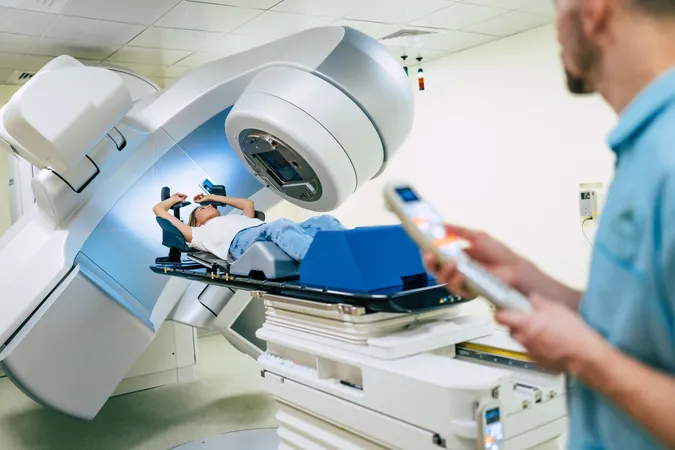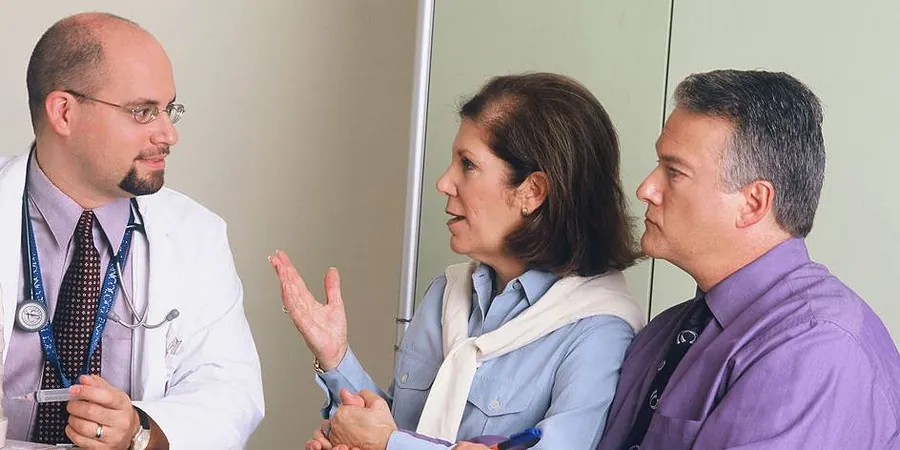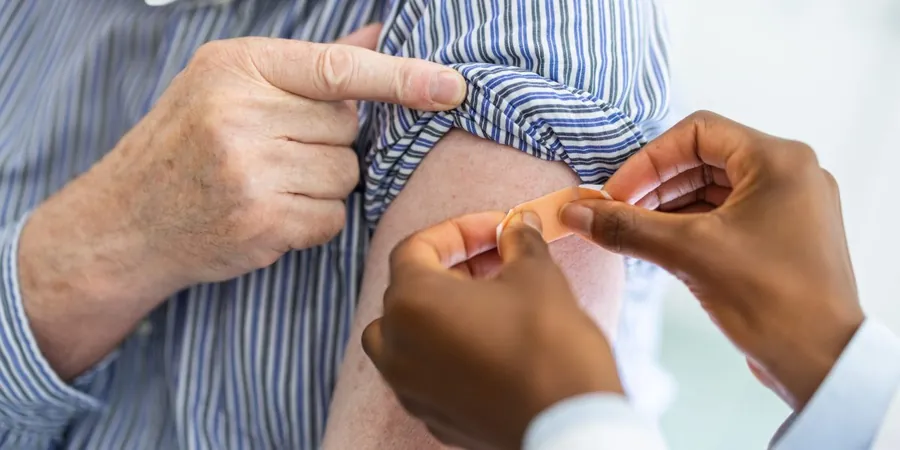
Revolutionary Research Reveals Quick Radiation Therapy Is Safe for Breast Reconstruction Patients!
2024-10-01
Author: Wei Ling
Overview
In a groundbreaking study, researchers have confirmed that an accelerated course of radiation therapy is just as safe as traditional methods for women undergoing breast reconstruction after mastectomy. This research, part of the RT CHARM study, stands as the first international multi-institutional investigation showcasing that a shortened post-mastectomy radiation regimen combined with breast reconstruction is both effective and non-inferior in terms of complications.
Breast Cancer Context
Breast cancer remains a significant health threat, being the second most commonly diagnosed cancer among women in the United States, with around 40% of breast cancer patients opting for mastectomy. Among these, many pursue breast reconstruction surgery, leading to a critical need for accessible post-operative care options. The new approach could reduce radiation treatment sessions from 25 down to just 16, making it a more viable option for patients.
Study Background and Methodology
Principal investigator, Dr. Matthew M. Poppe, a renowned professor of radiation oncology at the University of Utah, shared that, 'Over the last decade, we've aimed to transition all patients needing breast radiation into a more concise and manageable treatment schedule. Previous concerns regarding shorter treatment courses for mastectomy patients along with planned reconstruction lacked substantial data... until now.'
The RT CHARM trial (NCT0341497) involved a randomized phase 3 methodology, enrolling 898 women with unilateral invasive breast cancer who planned to undergo either immediate or delayed reconstruction. These participants received either hypofractionated radiation therapy, which required shorter durations (3-4 weeks), or traditional radiation therapy lasting 5-6 weeks. The main focus was on complications related to the breast reconstruction process.
Results and Findings
After 24 months, results indicated that among 572 patients who completed reconstruction, complications were found in about 14% of those who received the shorter hypofractionated therapy, compared to 11.7% among those undergoing traditional therapy. This difference falls within a statistically acceptable range, showing that shortened radiation does not adversely affect reconstruction outcomes. Additionally, complications were notably lower for autologous reconstruction compared to those using implants.
Toxicity and Recurrence Rates
Crucially, the trial reported that acute and late toxicity rates were statistically similar between both treatment options. Remarkably, local or regional recurrences occurred in only 1.5% of patients receiving the accelerated course, suggesting that this approach does not compromise long-term safety and effectiveness.
Expert Commentary
Dr. Atif J. Khan, senior author of the study and radiation oncologist at Memorial Sloan Kettering Cancer Center, expressed his enthusiasm about the findings: 'We anticipated a complication rate of 25% to 35%. To see a rate nearly half that is encouraging. Patients facing mastectomy should not have to forgo radiation for the sake of reconstruction or endure the logistical challenges of lengthy treatment schedules.'
Addressing Patient Concerns
Typically, patients with high-risk disease face about a 20% to 30% recurrence rate if they skip radiation entirely following mastectomy. With evidence now indicating that abbreviated radiation therapy is both safe and effective, there's hope that this option may alleviate some of the fears and logistical barriers faced by patients, particularly those living far from treatment centers.
Importance of Accessibility
Dr. Poppe highlighted the importance of accessibility: 'For many of my patients, the journey to treatment involves significant travel. A demanding 5 or 6-week regimen can be unrealistic. Transitioning to a 3-week protocol not only makes treatment more accessible but also offers relief to those who find lengthy schedules daunting.'
Conclusion and Implications
The implications of this study could redefine post-mastectomy care, paving the way for a more patient-friendly approach that prioritizes both treatment effectiveness and quality of life. As this research continues to gain traction, it is a hopeful sign for patients navigating the complexities of breast cancer treatment and reconstruction.



 Brasil (PT)
Brasil (PT)
 Canada (EN)
Canada (EN)
 Chile (ES)
Chile (ES)
 España (ES)
España (ES)
 France (FR)
France (FR)
 Hong Kong (EN)
Hong Kong (EN)
 Italia (IT)
Italia (IT)
 日本 (JA)
日本 (JA)
 Magyarország (HU)
Magyarország (HU)
 Norge (NO)
Norge (NO)
 Polska (PL)
Polska (PL)
 Schweiz (DE)
Schweiz (DE)
 Singapore (EN)
Singapore (EN)
 Sverige (SV)
Sverige (SV)
 Suomi (FI)
Suomi (FI)
 Türkiye (TR)
Türkiye (TR)